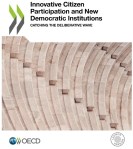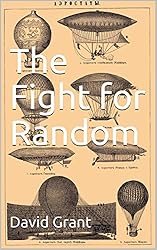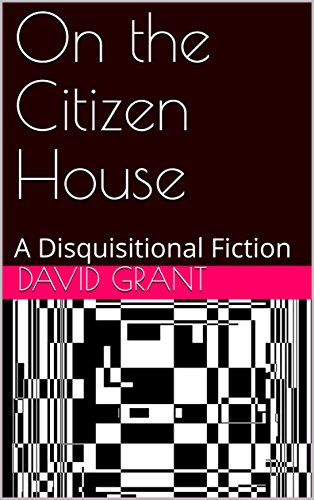Posted on August 18, 2021 by Common Lot Sortitionist
A 2018 paper by Gisela Zaremberg and Yanina Welp has the following abstract:
This paper discusses the myths regarding both the conceptualization and the expected effects that are implicitly or explicitly presented in analyses of the so-called ‘democratic innovations’, that is, the new institutions that aim to increase public participation beyond regular elections. It is argued that these myths, together with the (fictitious) confrontation between direct and indirect politics, have generated false oppositions and reductionisms that mask the debate and limit empirical approximations to democratic innovation. A research agenda based on the concept of ‘participatory ecologies’ is suggested as a way to gain an understanding of the mechanisms of participation in a systematic way.
I found these excerpts of particular interest to the Equality-by-Lot blog:
In a participatory ecology there is no single mechanism that is able to deliver all the virtuous democratic effects. Empirical evidence supports this proposition. For example, a positive balance of participatory mechanisms was observed in Ireland with the combination of a citizen’s assembly selected by sortition, which opened an informed debate about abortion, and a referendum, as a fair mechanism to make legitimate decisions. A negative balance is exemplified by the experience with recall referendums in Japan, where recall is activated more against policies than against authorities; however, as the first is binding and easier than the activation of initiative, it is used more frequently.
Continue reading →
Filed under: Academia, Applications, Athens, Elections, Participation, Press, Sortition, Theory | Leave a comment »
Posted on July 10, 2020 by Common Lot Sortitionist
 A newly published document from the Organisation of Economic Co-operation and Development draws on data collected from nearly 300 case studies from 1986 to October 2019. Its 200 pages cover randomly selected Citizens’ Assemblies, Juries, Panels and ‘other representative deliberative processes’.
A newly published document from the Organisation of Economic Co-operation and Development draws on data collected from nearly 300 case studies from 1986 to October 2019. Its 200 pages cover randomly selected Citizens’ Assemblies, Juries, Panels and ‘other representative deliberative processes’.
This research and proposals for action fit within the organisation’s work on innovative citizen participation, which seeks to guide countries on the implementation […] of the 2017 Recommendation on Open Government.
The acknowledgements include many regular participants on the Equality-by-Lot blog.
The Canadian organization MASS LBP and the OECD will be launching the publication with a 60-minute Zoom event on 15 July 2020 at noon.
Filed under: Academia, Sortition | 21 Comments »
Posted on January 22, 2019 by Common Lot Sortitionist

An article about the political activity of Pablo Soto in Madrid is mostly devoted to a popular initiative mechanism, but the last few paragraphs deal with an allotted body:
This month Madrid plans to launch Mr Soto’s most far-reaching reform yet – an “observatory” of 57 citizens selected at random to advise the city’s 57 councillors.
Mr Soto explains that an algorithm will ensure that observatory members will be representative of Madrid’s social diversity, with a one-year mandate and access to expert assistance to reach well-informed decisions.
Image caption A selection of the citizens’ proposals (translated from Spanish) featured on the platform in early January
The concept was inspired by the ancient Athenian practice of choosing citizens to form governing committees, and by more recent examples where governments have asked the people to decide on single issues to break political deadlock.
In Australia, a “citizens’ jury” was asked about the construction of a nuclear dump.
“The idea is as old as democracy itself,” he says. “A group of people chosen at random – if they have the time and capacity to study the issues in depth – can take very representative decisions.”
Filed under: Applications, Press, Sortition | 8 Comments »
Posted on June 9, 2018 by Common Lot Sortitionist
 Not being British I hesitate to post this entry, but I am advised by an informed source that “this is DIRECTLY on point re your sortition cause, and from perhaps the most prominent public law academic of the past century.”
Not being British I hesitate to post this entry, but I am advised by an informed source that “this is DIRECTLY on point re your sortition cause, and from perhaps the most prominent public law academic of the past century.”
To me the article seems to be a direct lift of Fishkin’s “Deliberation Day”:
A number of things were wrong with the 2016 referendum, including the disenfranchisement of key stakeholders and the extent of misinformation by both sides. Given that referendums should be informed exercises in democratic decision-making, Bruce Ackerman [Sterling Professor of Law and Political Science at Yale] and Sir Julian Le Grand [Professor of Social Policy at the Marshall Institute, LSE] explain how a referendum on the deal should look like.
[T]he government should take affirmative steps to fill the information gap. The best way forward is suggested by social science experiments, including an early one held in Britain. In 1994, Channel Four organised an intensive discussion amongst ordinary citizens on whether the UK should become more or less engaged with Europe. The scientifically selected sample of 238 participants went to Manchester for a weekend to engage in a series of small group exchanges with competing experts for Yes and No, as well as representatives from the three major parties. At the end of the weekend, support for Britain’s increased integration into the EU rose from 45% to 60%. In contrast, support for the Euro did not rise above 35%. Before-and-after questionnaires established that participants became more knowledgeable.
Filed under: Academia, Ballot measures, Deliberation, Proposals, Sortition | 2 Comments »
Posted on April 5, 2018 by Common Lot Sortitionist
 In four screenplays, a short stage play, a long essay, a novella and a novel I consider the pros and cons of using sortition (random selection) to ensure that policy-making bodies accurately represent the people they serve.
In four screenplays, a short stage play, a long essay, a novella and a novel I consider the pros and cons of using sortition (random selection) to ensure that policy-making bodies accurately represent the people they serve.
The Fight for Random – wild magical realist screenplay
Random Takes Off – political action drama screenplay
Democracy at Random – road trip screenplay addressing eugenics and income
Random Takes Baltimore – municipal version of “Random Takes Off” screenplay
Next Step for Democracy – a short comedic educational stage play
Why Elections Are the Problem and How to Make Democracy Real — annotated essay
On the Citizen House: A Disquisitional Fiction – a disputatious novella
The Common Lot: A Novel – as stated
Detailed descriptions at https://amazon.com/author/grantd.
Filed under: Fiction, Sortition | 11 Comments »
Posted on July 18, 2017 by Common Lot Sortitionist
 On the Citizen House: A Disquisitional Fiction is a novella of ideas in the form of socratic dialogue wrapped up in a road trip. Formatted as a proto-screenplay, description is sparse, characterization thin. Dialogue and visuals dominate.
On the Citizen House: A Disquisitional Fiction is a novella of ideas in the form of socratic dialogue wrapped up in a road trip. Formatted as a proto-screenplay, description is sparse, characterization thin. Dialogue and visuals dominate.
The Citizen House is the world’s first national legislature chosen as the original Athenian democrats did — by sortition (by random selection). Two representatives face the challenges of advocating for their disparate views (eugenics / universal basic income) in a legislature demographically more reflective of the entire population than any other.
Amazon e-book: http://tinyurl.com/yao8lckx
68 pages, single spaced. 22,800 words.
Filed under: Fiction, Sortition | 2 Comments »
Posted on February 15, 2016 by Common Lot Sortitionist
A review of Landemore’s Democratic Reason by Alfred Moore published in Contemporary Political Theory:
Landemore argues that rule by the many is better than rule by the few or the one because it can harness ‘democratic reason’. Democratic Reason refers to the collective political intelligence of the many, which in turn is a function of individual epistemic competence and the cognitive diversity of the group. [S]he claims that a group containing diverse perspectives, interpretations, heuristics and predictive models, will be better at making decisions than a less diverse group of people, even if they are individually smarter. As the key feature of democracy is that it is an inclusive decision procedure, and inclusion tends to increase cognitive diversity, democracies are likely to outperform rival regime types.
Filed under: Academia, Books, Deliberation, Press | 1 Comment »
Posted on January 19, 2016 by Common Lot Sortitionist
This article points to the problem of how to produce true representation in juries.
Dearbhail McDonald: The verdict is in – our jury selection process is a farce
Juries are meant to be representative of society as a whole. However, they are anything but, writes Dearbhail McDonald
Trial by jury is one of the last remaining sacred cows in the criminal justice system.
Born by accident to replace trial by ordeal and duelling, amongst other dispute resolution techniques, the random selection of 12 peers is still prized as the only anchor by which a government can be held to the principles of its constitution.
Lord Devlin, the celebrated British judge whose father was from Co Tyrone, famously described jury trial as the lamp that shows that freedom lives.
Here’s the salient point:
For the most part, trial by a jury of one’s peers is as unquestioned as it is innate.
But our current system of selecting juries makes a mockery of jury trial as a bulwark against State power and other anomalies.
To fulfil their constitutional mandate, juries (which only featured women from as late as 1976) are meant to be representative and jurors drawn from a complete cross-section of the community.
They are anything but.
In practice, the burden of jury duty is disproportionately borne by Dubliners; the young, the old and retired, the unemployed, civil servants or those who can manage to undertake the difficult task. The recent empanelling of a 15-strong jury … brought home to me the challenges of achieving the “constitutional completeness” of the representative jury.
Continue reading →
Filed under: Elections, Juries, Press | 3 Comments »
Posted on August 13, 2015 by Common Lot Sortitionist
“Lottery Voting: A Thought Experiment” is a 1995 article by Akhil Reed Amar, perhaps the most influential Constitutional Law theorist in the US.
In the article Amar proposes using the lottery to determine representation only after a standard election campaign has determined the percentage of support each candidate has received.
In this case then, the ‘statistical representation’ (which he champions) would be only of those citizens willing to go through the process of standing for election.
This is much less representative — and less attractive to me — than eliminating campaigning altogether… and using only two parameters to enter the lot: 1.) registration for it, indicating a willingness to serve if chosen; 2.) a simple civics test (such as the Naturalization Test in the U.S.).
Filed under: Academia, Elections, Proposals, Sortition | Tagged: Akhil Reed Amar | 35 Comments »
Posted on June 16, 2015 by Common Lot Sortitionist
Claudia Chwalisz writes in The Globe and Mail:
Replace this archaic institution with a citizens’ senate

While calling for unicameralism would be a mistake – it would reduce the government’s legitimacy due to lack of oversight – the more radical proposal of “abolition” leaves the path clearer toward true structural change that moves beyond tinkering at the edges (such as elected senators).
Why not replace the archaic institution with a citizens’ senate – a rotating group of randomly selected citizens that serve as a house of review? The random group could be stratified, to ensure representativeness of sex, age, race, socio-economic status and regional diversity, matching the makeup of Canadian society.
Granted that this is only an op-ed piece, but I have to admit I am rather amazed that the idea of a sortitionally-selected federal legislature is making it so rapidly into the mainstream.
Filed under: Elections, Press, Proposals, Sortition | Tagged: Claudia Chwalisz | 6 Comments »





 Not being British I hesitate to post this entry, but I am advised by an informed source that “this is DIRECTLY on point re your sortition cause, and from perhaps the most prominent public law academic of the past century.”
Not being British I hesitate to post this entry, but I am advised by an informed source that “this is DIRECTLY on point re your sortition cause, and from perhaps the most prominent public law academic of the past century.” In four screenplays, a short stage play, a long essay, a novella and a novel I consider the pros and cons of using sortition (random selection) to ensure that policy-making bodies accurately represent the people they serve.
In four screenplays, a short stage play, a long essay, a novella and a novel I consider the pros and cons of using sortition (random selection) to ensure that policy-making bodies accurately represent the people they serve. On the Citizen House: A Disquisitional Fiction is a novella of ideas in the form of socratic dialogue wrapped up in a road trip. Formatted as a proto-screenplay, description is sparse, characterization thin. Dialogue and visuals dominate.
On the Citizen House: A Disquisitional Fiction is a novella of ideas in the form of socratic dialogue wrapped up in a road trip. Formatted as a proto-screenplay, description is sparse, characterization thin. Dialogue and visuals dominate.